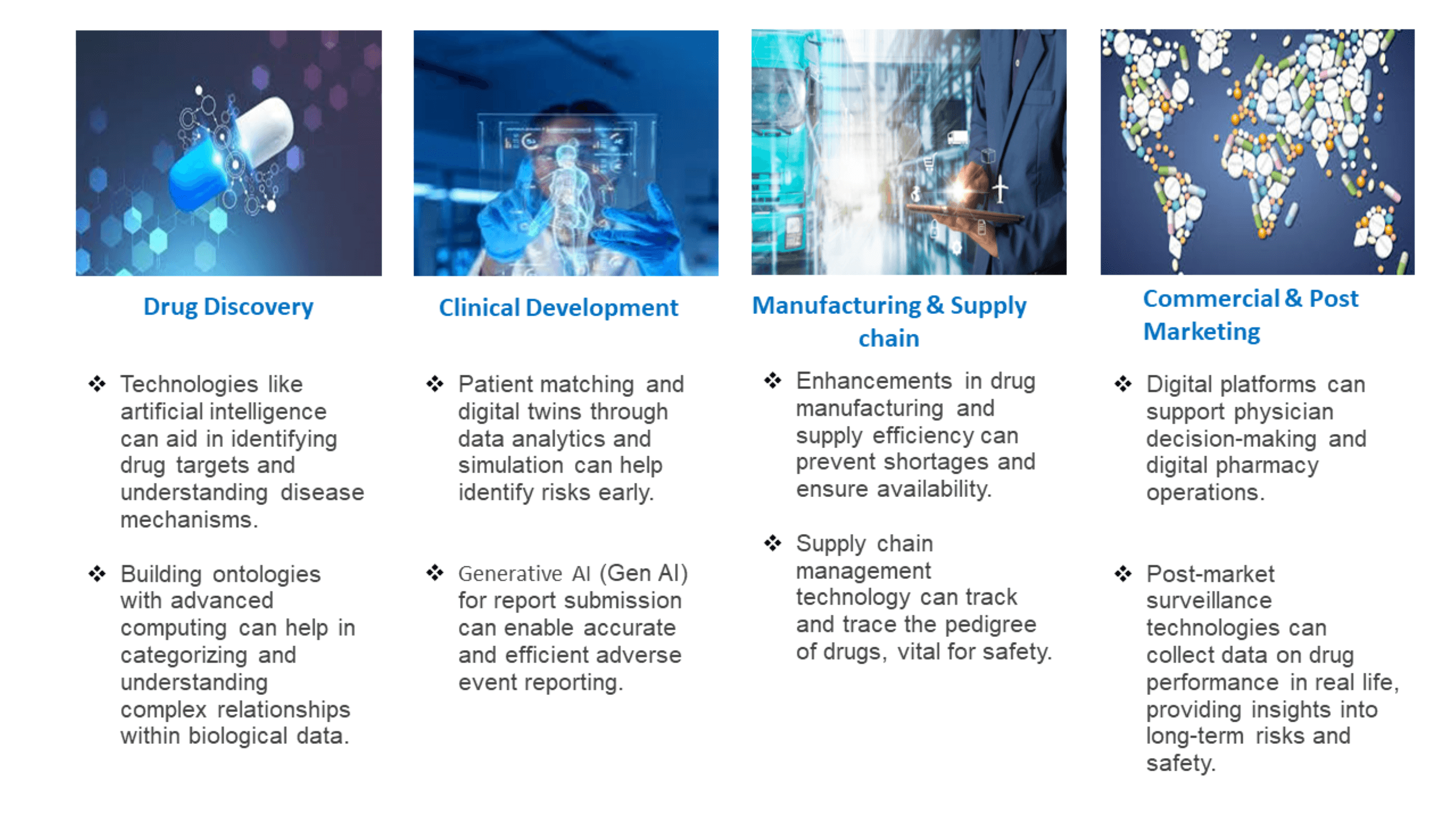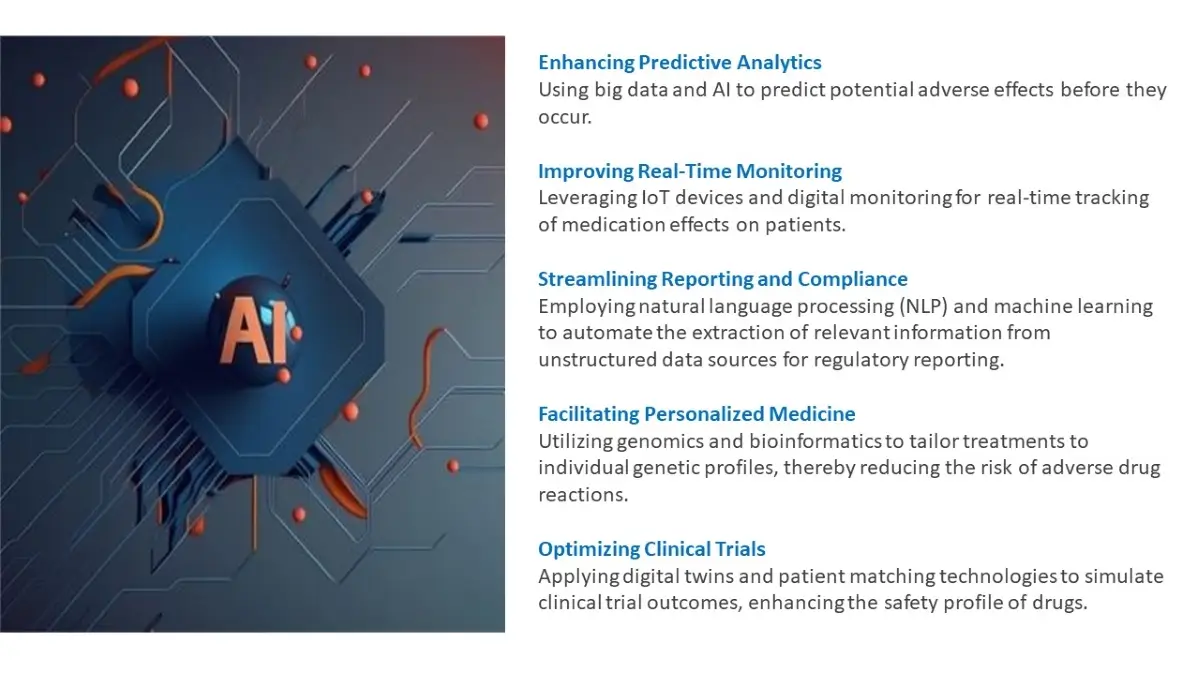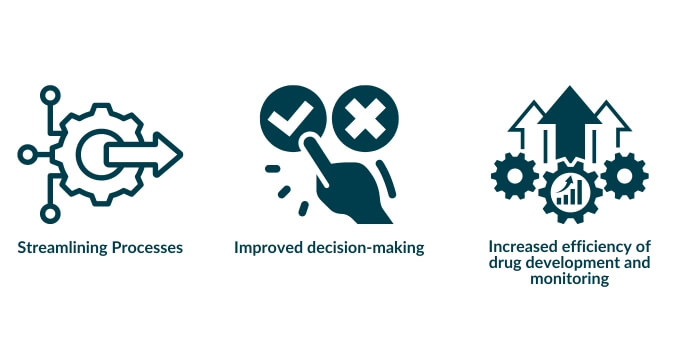Generative AI (GenAI) is making a significant impact on the manufacturing industry by enabling smarter, more efficient, and adaptive processes. This technology enhances every aspect of manufacturing, from design and prototyping to production and after-sales service. GenAI accelerates the design process through automated generation of blueprints and materials, significantly reducing the time from concept to production. In production, it aids in optimizing layouts and predicting machine maintenance needs, thereby minimizing downtime, and extending the lifespan of machinery. GenAI also improves quality control by pre-emptively identifying defects and proposing corrections. Beyond operational efficiencies, GenAI fosters innovation by generating novel solutions to engineering challenges and customizing products to meet specific customer needs, thus opening new avenues for growth and competitiveness in the manufacturing sector.
Knowledge Task Automation
In the manufacturing industry, Knowledge Task Automation through generative AI focuses on enhancing accessibility to vast amounts of technical knowledge and operational data. This technology democratizes complex information, allowing employees at all levels to make informed decisions quickly. Generative AI can sift through data to provide insights and answers, enabling workers to perform sophisticated analysis without specialized training. This not only speeds up problem-solving but also fosters innovation by leveraging collective intelligence across the organization.
- GenZAI: This framework uses generative AI to democratize knowledge and technical skill sets. It provides a structured design-thinking methodology to discover, evaluate, and select industry-based solutions. This application helps in harnessing collective intelligence, leading to faster adoption and more effective implementation of AI technologies.
- NectarBOT: A tool designed to perform non-routine functions such as extracting and comparing information from structured and unstructured data sources. This capability enhances decision-making processes by providing comprehensive insights and automating judgment-based tasks.
- NaviCADE: An AI that processes business contracts to identify key entities, obligations, and automates workflows. This ensures compliance and reduces the risks associated with business operations, providing a significant efficiency boost in handling complex legal documentation.
- SpendAnalytics: An intelligent business analytics dashboard integrated with GenAI capabilities. It provides interactive analysis and interprets business data, supporting strategic decisions in the manufacturing industry. This tool can be instrumental in understanding and optimizing spending patterns and operational efficiencies.
Workflow Augmentation
Workflow Augmentation in manufacturing entails the use of generative AI to streamline and enhance the efficiency of production processes. By automating non-routine tasks such as predictive maintenance, quality control, and logistics, AI can significantly reduce downtime and minimize errors. It allows for real-time adjustments in production lines based on dynamic operational data, helping to maintain continuous flow, and optimizing resource allocation. This level of automation not only improves operational efficiency but also enhances worker safety by predicting hazardous conditions before they become critical.
Content and Output Generation
Generative AI plays a crucial role in Content and Output Generation within the manufacturing sector by creating accurate and timely documentation, reports, and analyses. This capability extends to generating complex material like user manuals, training materials, or maintenance schedules tailored to specific equipment or processes. AI-driven content generation helps maintain consistency and quality across communications, while also ensuring compliance with industry standards and regulations. Moreover, it supports marketing efforts by producing engaging and technically accurate content that can be used to showcase products and innovations to potential customers.
- NRich: Aimed at marketing teams, NRich assists in developing visually rich and search-optimized product details. This accelerates the product’s time to market and reduces content creation costs, thereby increasing marketing efficiency and effectiveness.
- NaviGEN: This application leverages generative AI to draft and generate business contracts based on specific organizational needs and standards. It automates content generation and workflow processes, thereby optimizing the efficiency of contract management systems.
Generative AI is significantly impacting the manufacturing and automotive industries by automating complex processes, enhancing decision-making, and generating valuable business insights. These advancements lead to increased productivity, reduced costs, and improved compliance and risk management, propelling these industries toward more innovative and efficient future operations.
Integration of AI (Artificial Intelligence) technologies in manufacturing processes is ushering in the era of Industry 4.0. This transition is structured around three core pillars: Digital Lean Process, Smart Operations Management, and Digital Enterprise. These pillars represent a comprehensive framework for integrating advanced digital technologies into manufacturing processes. They enhance operational efficiency, optimize production workflows, and forge stronger connections across the entire value chain. By leveraging AI-driven solutions, manufacturers can realize significant improvements in predictive maintenance, real-time operational insights, and seamless supply chain management. This AI-enabled transition will boost productivity, reduces costs, and ensure sustained competitive advantage in the rapidly evolving digital economy of Industry 4.0.
Digital Lean Process
Digital Lean Processes in manufacturing revolve around integrating digital technologies to streamline operations, enhance the efficiency of production lines, and reduce waste. By leveraging tools like AI-driven predictive maintenance, real-time monitoring systems, and digital twin technologies, manufacturers can achieve greater precision and control over their manufacturing processes. These innovations not only optimize resource use but also improve product quality by minimizing errors and inconsistencies. The adoption of such digital solutions supports the principles of lean manufacturing by reducing unnecessary costs and maximizing value to the customer.
The adoption of digital technologies to enhance the experience of customers, suppliers, and the workforce is the cornerstone of the Digital Lean Process. This includes:
- AI-powered predictive maintenance: Utilizing AI to anticipate maintenance needs, thereby reducing downtime and increasing productivity.
- AI-driven workforce insights: Harnessing AI to provide actionable insights about workforce efficiency and safety.
- AR/VR applications: Implementing augmented and virtual reality for remote assistance, providing workers with real-time support and information.
- Connected Worker Platforms: Deploying platforms that integrate various data and communication tools to facilitate smoother operations.
- Smart Assembly Instructions for Shop Floor Workers: Offering digitized, easily accessible instructions that enhance the quality and speed of assembly processes.
Smart Operations Management
Smart Operations Management in the manufacturing sector utilizes advanced analytics, machine learning, and IoT devices to enhance the oversight and control of operational processes. This approach includes deploying smart dashboards that provide comprehensive visibility into production metrics and employing predictive algorithms to anticipate machine failures or production bottlenecks before they occur. By integrating these technologies, manufacturers can maintain high operational efficiency, adapt quickly to changes in demand, and ensure consistent product quality. This proactive management style not only increases productivity but also supports sustainable manufacturing practices by optimizing energy use and reducing waste.
This pillar focuses on refining operational activities through advanced analytics and smart technologies:
- Smart dashboarding for production monitoring: Implementing dashboards that provide comprehensive production insights, enabling proactive management.
- Predictive quality control: Applying AI models to predict and improve product quality, minimizing defects and enhancing customer satisfaction.
- Energy Efficiency insights in real time: Leveraging AI to monitor and optimize energy use, reducing costs and environmental impact.
- IoT data integration & analytics: Integrating IoT devices within the production line to collect and analyse data, optimizing operations and maintenance.
Digital Enterprise
The concept of a Digital Enterprise in manufacturing encapsulates the complete digitization of the value chain, from supplier interactions to customer delivery. This transformation involves the integration of digital platforms that facilitate seamless communication and collaboration across different departments and with external partners. By employing technologies such as ERP (Enterprise Resource Planning) systems, CRM (Customer Relationship Management) solutions, and advanced supply chain management tools, manufacturers can enhance responsiveness and flexibility. This comprehensive digital integration helps businesses respond swiftly to market changes, improve customer satisfaction, and drive innovation, all while maintaining a competitive edge in a rapidly evolving industry.
This pillar focuses on fostering a connected value chain that spans from demand forecasting to delivery:
- Demand forecasting & real-time inventory management: Using AI to predict future product demands and manage inventory levels efficiently.
- Supplier Performance Analytics: Analysing supplier data to enhance sourcing strategies and improve supply chain resilience.
- Intelligent Routing and Scheduling: Employing AI to optimize logistics and distribution routes, ensuring timely deliveries and reducing costs.
Enabling a Digital Future
By embracing these AI-driven solutions, manufacturers can not only optimize their operations but also deliver superior experiences to their stakeholders. This digital transformation not only makes processes more efficient but also helps businesses stay competitive in a rapidly evolving industry landscape. The move towards a more digital, interconnected, and efficient manufacturing environment is not just about technology adoption; it is about transforming the very fabric of how manufacturing works to create a more sustainable, responsive, and profitable future.
In the dynamic landscape of life sciences, breakthroughs driven by Artificial Intelligence (AI) and Machine Learning (ML), along with the innovative capabilities of Generative AI (Gen AI), are heralding a new era of possibilities. These technologies are at the forefront of revolutionizing research, diagnostics, treatment, and patient care, catalysing unprecedented advancements in the field.
- Drug Discovery and Development: AI/ML is revolutionizing drug discovery by predicting drug-target interactions, optimizing drug design, and speeding up clinical trials. Gen AI, with its capacity to generate novel data and simulations, is aiding in the identification of new drug candidates and understanding complex biological processes.
- Diagnostics and Predictive Analytics: AI-powered tools are improving diagnostic accuracy and efficiency, especially in imaging and pathology. By analyzing medical images, AI can detect abnormalities and diseases at earlier stages. Predictive analytics are being used to anticipate disease outbreaks and patient outcomes, facilitating more proactive healthcare management.
- Personalized Medicine: Leveraging AI algorithms, healthcare providers can offer personalized treatment plans based on a patient’s genetic makeup, lifestyle, and other factors. This approach increases the effectiveness of treatments and reduces side effects, leading to better patient outcomes.
- Genomic Analysis and Gene Therapy: AI/ML is integral in analyzing complex genomic data, helping to identify genetic markers related to diseases and informing gene therapy strategies. Gen AI models can simulate genetic modifications, predicting their outcomes and optimizing therapeutic interventions.
- Operational Efficiencies in Healthcare: AI is streamlining administrative and operational tasks in healthcare organizations, from patient scheduling to inventory management. This operational efficiency can lead to reduced costs and improved patient care
Navikenz vision is to “Contribute significantly to the drug discovery to post market management value chain through relevant technology solutions.”
We leverage technology to enhance every step of the drug’s lifecycle. By doing so, we aim to improve the efficiency and safety of drug development and monitoring processes, reduce costs, and ultimately ensure that the medications that reach consumers are as safe and effective as possible. The integration of AI and ML within these processes is not just an operational improvement but is transformative, potentially leading to better health outcomes and innovations in patient care.
Where Emerging Technologies Integrate into the Industry

Emerging technologies facilitate drug safety and risk management by:
Emerging technologies, especially Artificial Intelligence (AI) and Machine Learning (ML), are revolutionizing drug safety and risk management. These technologies offer unprecedented capabilities in identifying potential risks and ensuring the safety of pharmaceutical products throughout their lifecycle.
- Predictive Risk Assessment: AI and ML algorithms can analyze vast datasets, including historical clinical trial data and real-world evidence, to predict potential drug interactions and side effects. This predictive capability allows for early identification of safety concerns, well before they become widespread issues.
- Real-Time Monitoring and Surveillance: AI systems facilitate continuous monitoring of drug performance in real-time, enabling immediate action in response to any signs of adverse effects or unexpected drug behavior. This real-time surveillance ensures that any potential risks are managed proactively, safeguarding patient health.
- Enhanced Decision-Making: By integrating AI with data analytics, researchers and healthcare professionals can make more informed decisions regarding drug development and patient care. AI-driven insights help in understanding the nuanced relationships between different variables, leading to safer and more effective therapeutic outcomes.
- Automation of Regulatory Compliance: AI tools can automate the tracking and reporting of adverse drug reactions, ensuring compliance with regulatory standards and facilitating faster and more accurate reporting processes. This not only helps in maintaining public trust but also speeds up the process of getting safe drugs to the market.

The adoption of Artificial Intelligence (AI) and Machine Learning (ML) in life sciences, particularly in the context of drug safety and risk management, signifies a transformative shift. These technologies empower the industry with predictive risk assessment, real-time monitoring, enhanced decision-making, and automated regulatory compliance. This comprehensive suite of tools is instrumental in advancing drug development processes, ensuring that safety and efficacy remain paramount. Through the strategic use of AI and ML, the life sciences sector is better equipped to navigate the complexities of modern healthcare challenges, leading to more reliable and effective outcomes in drug management and patient care.
The global life sciences sector is experiencing rapid transformation, driven by the changing needs of patients, the rising costs of healthcare, demands for new treatments, and the imperative for accelerated R&D innovation. According to Accenture, 100% of biopharma executives agree that AI foundation models will revolutionize how and where AI is used in the sector, highlighting its potential to drive significant revenue growth in the coming years. Additionally, 92% of these executives view data transparency as a competitive differentiator.
The life sciences sector is at a critical juncture, shaped by several key market drivers and competitive forces. One major driver is the growing demand for innovative healthcare solutions, such as vaccines and next-generation treatments like cell and gene therapies. These areas are not only expanding the revenue streams for life sciences companies but are also spurring mergers and acquisitions (M&A) to facilitate business transformation and ecosystem value creation.
For companies in the life sciences sector to maintain their competitive edge, it’s imperative to stay ahead with the latest technologies and innovations. This includes adopting AI and machine learning for drug discovery, enhancing supply chain management, and engaging in strategic M&A to expand their product portfolios and capabilities. By harnessing the right technology and strategic insights, we can enable companies in the biotechnology, pharmaceutical, and medical technology fields to stay ahead of the curve, ensuring they not only keep pace with industry evolution but also lead the way in innovation and patient care.
Emerging technologies can play a critical role in ensuring drug safety and risk management by

At Navikenz, we are at the cutting edge of accelerating the adoption of Generative AI within the pharmaceutical industry. Our comprehensive suite of AI-enabled solutions is tailored to meet the intricate needs of this sector, ensuring that our clients stay ahead in a rapidly evolving landscape.